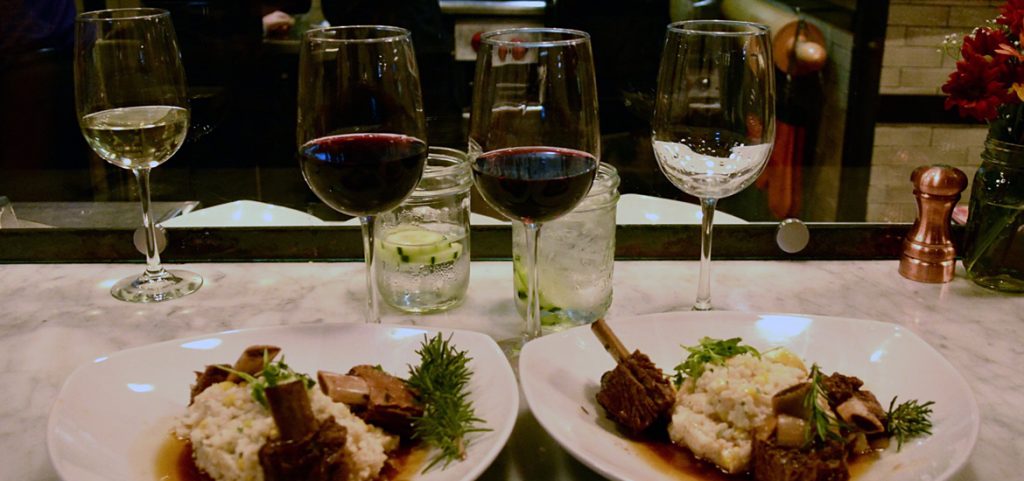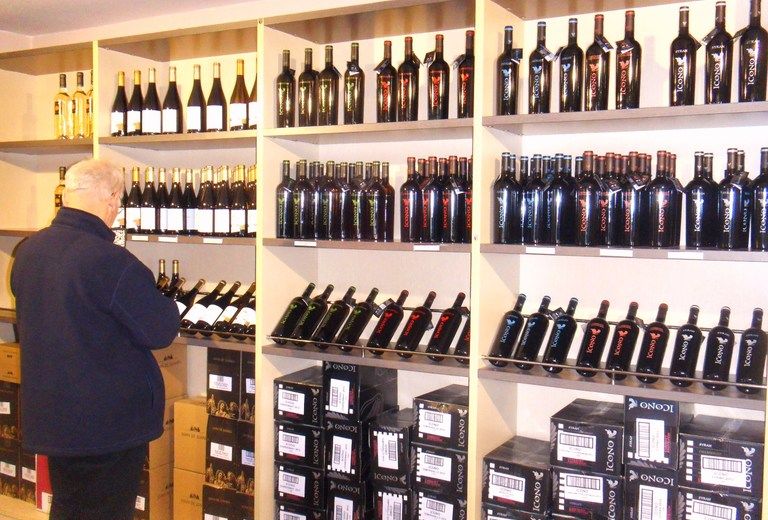Most people define boutique wine as “small production”, “artisanal” or even “cult”. But what does that really mean for a wine to be boutique? Is it the number of bottles a winery makes? Or the simple fact that the vineyards happen to be in a remote location enough to make it boutique? Probably “Yes”.
Is boutique wine a state of mind rather than the number of cases produced?
There are plenty of large wineries, though that produce tens of thousands of cases and think of themselves as “boutique.” The winemaker is passionate about their craft. The vineyard manager knows every vine, exactly when to harvest the grapes, and how delicately they should be crushed. The whole wine operation just had a sense of purpose that transcended the “business” of producing wine.
Is it about attitude rather than location? There are other considerations, of course.
Most wines were made by ma-and-pa operations. Very often producing just enough for the family. The growing international popularity and profitability of wine have become big businesses. Much of the wine consumed today is the product of massive multinational enterprises. Wine companies in the “large” category produce more than 450,000 cases annually. A major international brand can sell well over a million.
The rise of these big market-driven brands, tailored for popular tastes, has sparked fears about all wine tasting the same. Boutique wineries, in contrast, have become widely regarded as the antidote: repositories of individuality and champions of diversity. But is this opinion warranted?
It’s often the drive and dedication of the smaller players that get new varieties, practices, and even regions off the ground. But large companies can be sources of innovation, too. They have substantial research budgets to drive this. Some of the most powerful wine groups have been investing in producing top benchmark wines.
Ready to have your own wine collection? Go here to learn how.
Many global brands were once small wineries
Small wineries have expanded and developed into big businesses. Some winemakers want to grow their enterprises. Others actively avoid becoming a size where they can no longer be involved with their wines from vine to bottle. The bigger wineries tend to lose that “soul”. The day-to-day operations become about the efficiency of operations and costs. Decisions made due to other pressures do not always consider quality. The intimate and personal connection to every part of the process – the land, vines, and wines, guided by passion rather than chasing profit – does seem to result in some of the most expressive and distinctive wines.
However, it’s always accompanied by an understanding and commitment to what’s required to make great wines. Without this, small producers can still make bad wines. Thankfully, these are increasingly rare. But it still pays to examine some of the notions surrounding small-scale winemaking. The idea of a family-owned vineyard with wine made in its tiny winery by the proprietor is still a romantic notion and viable option.
Often the reality is quite different. Given the substantial costs of land and planting, some small wine companies don’t own any vineyards. Many make wines in shared facilities. And a not an inconsiderable number, largely those who’ve come to wine for lifestyle or business reasons, will employ someone else to make their wines for them.
CAN BIG BE BOUTIQUE?
It’s not uncommon for larger companies to embrace approaches common in smaller operations. But can a big business truly embrace a boutique mentality when making its wines?
There needs to be a common desire to achieve wines that stand apart from others. Wines that offer intrigue and raise eyebrows. Most importantly, do this on a regular basis. It is possible for any large company to embrace a boutique winemaking philosophy. But there needs to be a willingness and everyone needs to be on the same page.
The company’s size assists in a quest for high quality, offering opportunities not available to smaller players. Typically, a large winery will have the option to select fruit from more than one vineyard or a range of specific areas within a vineyard. This will open up the opportunity to be more selective, and have more options both if the vintage works against you or purely from a blending perspective. As a group, the size allows for experimentation, being innovative, and trying new techniques.
In Conclusion
But what is clear is that the individual voices of our smaller wineries are an important part of the diversity and distinctiveness of our wines. Each of their wines tells a story – of a place, a season, and the people that made them – and they are well worth seeking out and hearing.
Wine complements so many foods and food experiences. A boutique wine pairing can make any meal into an event, and more so, a lasting memory. Take a moment to think about the last time you had a truly fine wine. Do you remember? With fine wine, you can remember everything about the occasion. Something magical happens with each event that has wine included… it does something remarkable.
Fine Wines are just a few clicks away!
Now you don’t even need to leave your home. Boutique wine comes right to your door. And you get the benefit of amazing experiences in each and every glass! Join us in this amazing club today.



